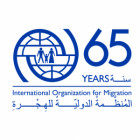وظيفة شاغرة
Municipality Development Plan consultants - Tanmia – UK funded Sub National Governance Project for Libya
Terms of reference
Facilitation of an Integrated Municipality Development Plan (MDP)
Bani Walid Municipality
1. Brief description of the Tanmia ( تنمية) Programme:
Tanmia (تنمية) is a UK-funded Conflict, Security and Stability Fund (CSSF) programme.
The Tanmia Program (تنمية) is designed to contribute to the provision of more responsive and inclusive sub-national government services in Libya by supporting the Government of National Accord’s (GNA) efforts to decentralise.
Tanmia seeks to support Municipalities and Sector Ministries in implementing the decentralization policy as provided for in Law 59 (2012). The main focus of Tanmia is to support a sustainable decentralized bottom-up planning, decision-making and implementation process through the training and capacity building of development agents at the Municipal and community levels.
In addition, Tanmia (تنمية) aims to assist Municipalities in integrating decentralized departments into the Municipal system and to support sub-Municipal structures (Mahalas) to undertake their roles and functions.
Tanmia (تنمية) also seeks to improve existing service delivery systems at Municipal level, through the provision of training and technical assistance, and to widen the decision-making base by ensuring greater participation in the development process at Community, Mahala and Municipalities levels.
Tanmia (تنمية) seeks to ensure that activities in various sectors such as water and sanitation, roads, health, education etc. are planned and implemented in close cooperation between the Municipalities, the respective Sector Departments and the communities.
The various key players from the Municipalities and Mahalas should be co-operating and consulting with each other. The decisive factor in this process will be improvement in both the Municipalities’ internal working practices and the professional skills of the Municipal Administration and other major actors in the District.
Tanmia (تنمية) will actively support the on-going efforts of the Municipalities to improve internal capacities and to foster operational linkages with Mahalas, decentralized Sector Departments, NGOs/CBOs and the private sector, as a means of ensuring decentralized management and citizen participation at the Municipal level.
Tanmia (تنمية) envisages complementing these local level support measures with activities at the national level in the Ministry of Local Government (MLG), the Ministry of Planning, the Ministry of Labour and the Higher Committee for Transferring Competences aimed at sharing experiences from the local level to inform policy and programme formulation processes.
1.1 Tanmia (تنمية) outcome areas:
Tanmia (تنمية) strategic emphasis is based on three outcome areas:
Outcome 1: Contribute to stronger (central and municipal) executive capability to implement Libya’s emerging decentralisation agenda
Outcome 2: Central ministries’ capacity to apply lessons learned from pilot Municipalities developed
Outcome 3: Municipalities have developed an integrated plan and budget and are delivering project(s) using the programme’s funds
1.2 Context of the assignment:
A fully decentralised Libya would have the Municipalities control many of the services delivered at that level. Prior to transfers of services and decentralisation at municipal level, central government ministries, by virtue of their deconcentrated offices in the municipalities, are responsible for planning and implementing activities in a sectoral manner. The planning authority for the Sector Ministry offices in the Municipalities lies with the Sector Ministries. The planning efforts of the Municipality and the Sector offices are disconnected. Budgets of Sector offices and Municipal budgets are also disconnected.
It is currently unclear for communities that the services they complain about e.g. water, sanitation, health, are ones which the Municipality has no planning authority over. There is little opportunity for the wider community to influence decision-making, let alone the marginalised members of that community.
Municipalities cannot wait until full decentralisation is achieved and the decentralised Sector offices are working under the span of control of the Municipalities. They need some urgent interim solutions.
The project proposes a planning approach which will contribute to Libya’s vision of a fully decentralised system while accommodating the urgent needs of the Municipalities. It will pave the way for fiscal decentralisation at Municipal level and contribute to other donor’s administrative decentralisation efforts.
Our intention is to support Municipalities and staff from Sector Ministries to collaborate to develop plans for the Municipality (Sector Ministry Integration) and subsequently start to produce composite budgets. This would be an interim stage towards decentralisation and would generate significant learning for the bodies involved.
Support the development of appropriate guidelines
Within the framework of decentralisation, guidelines defining the roles, responsibilities and procedures for planning and implementation of projects have yet to be spelled out. There are presently no national planning or budgeting guidelines for the Municipalities available. The programme will therefore seek to collaborate with national level stakeholders – Ministries of Local Government, Planning, Finance, Labour – to develop them.
2. Duties and Responsibilities of the Consultant
Under the overall guidance of the Tanmia (تنمية) Governance Advisor, the Consultant will provide services for facilitating an Integrated Municipal Development planning programme in the Bani Walid Municipality.
The consultant will run the training sessions in Bani Walid using the draft Integrated Municipal Development Planning Manual and the draft Integrated Development Planning Participants’ Handbook already developed by the Tanmia (تنمية) Governance advisor. The consultant will also receive the Local Development Planning manual which was developed earlier on by GIZ.
The consultant is also expected to support the Governance Advisor in aligning the Integrated Municipal Planning Manual and Participants’ Handbook with the realities on the ground in Bani Walid and other Municipalities.
2.1 Deliverables
The deliverables include the following areas:
MODULE 1: Establish and orient a Municipal Planning Coordination Committee (MPCC)
Activity 1: Establish MCCP with representatives of Municipalities (Councillors, Planning Department, civil society, private sector, Municipal Shura Council or similar institution, Directors of Sector Departments).
Activity 2: Orientation of MPPC members
MCCP members will be oriented on Libya’s national decentralisation roadmap/vision, techniques for public consultation, facilitation, different stages of integrated development planning and composite budgeting and M&E issues.
Activity 3: Setting the ground rules for MPPC members and launching the MPPC process.
Agree with MPPC members on the Terms of Reference for the committee and establish a role and functional delineation vis-à-vis Sector Department representatives and different membership groups of the MPPC.
Module 2: Situation analysis
Situation Analysis will set the pace for discussing a vision for the desired future of the district, hence planning in an integrated and participatory way to promote development. The analysis will include physical and demographic characteristics, conflict mapping, the environmental situation, human settlement patterns and conditions in the settlements in the Municipality. Other factors for consideration will be the municipal economy, production, gainful employment, human resource development, basic services, the vulnerable and excluded as well as good governance.
Module 3: Formulation of Goals, Objectives and Strategies
The analysis of the key sectors of the Municipal economy and the prioritised development issues should provide the basis for visualising and formulating goals, objectives and strategies for the development of the Municipality. These would indicate the areas in which the Municipality would intensively concentrate its efforts and resources within the planning period. The targets set need to be achieved within a certain timeframe. Hence, they have to be realistic in relation to the technical, financial and institutional capacity of the Municipality so as to improve the existing and future situation of the Municipality. It is also pertinent that the objectives and priorities take into consideration the national development agenda as well as other planned governmental and non-governmental programmes and projects.
Module 4: Design of Programmes and Budgets and Thematic Maps
The targets set in activity 5 will form the basis for designing programmes and accompanying composite budgets. Thematic maps should then be prepared based on the programmes to depict the outcomes of the implementation of the various projects. The thematic maps will represent pictures of spatial manifestation of the programmes envisaged in the plan according to the planning period.
Module 5: Municipal Approval
During this stage the draft plan should be presented to the general public (through open forums/public hearings) for their comments before submission to the Municipal Council for debate, discussions, approval and adoption.
3. Required Education, Skills and Experience
Relevant higher educational qualification (Master’s degree or equivalent) in Regional/Settlement Planning, Development Planning, Development Studies, and/or other relevant fields.
A minimum of five-year experience in spatial planning or related field
Excellent written and spoken English and Arabic language skills
Prior professional experience in facilitating Local Government Development Plans
Skills and knowledge in local government structures is considered an important advantage
Report writing skills in Arabic and English
4. Methodology
The consultants will facilitate the workshops using the interactive and participatory approaches that will ensure open and frank contributions from all participants. The meta-plan techniques of visualisation and consensus building could be the tools that will guide the consolidation and open sharing of decisions and outcomes throughout the assignment. Group work will be encouraged to enable detailed discussions among all the participants. In addition, plenary sessions will serve to consolidate decisions and arrive at consensus.
5. Report writing:
The report shall contain sections on:
Background of the mission
Summary on design or selection of instruments used for the Integrated Development Planning intervention.
Lessons learned concerning practicability and applicability of instruments used
How to apply?
Interested candidates should send their CV to tanmiagovernanceprogram@gmail.com
لتقدم للوظيفة أنتهت صلاحية الاعلان




